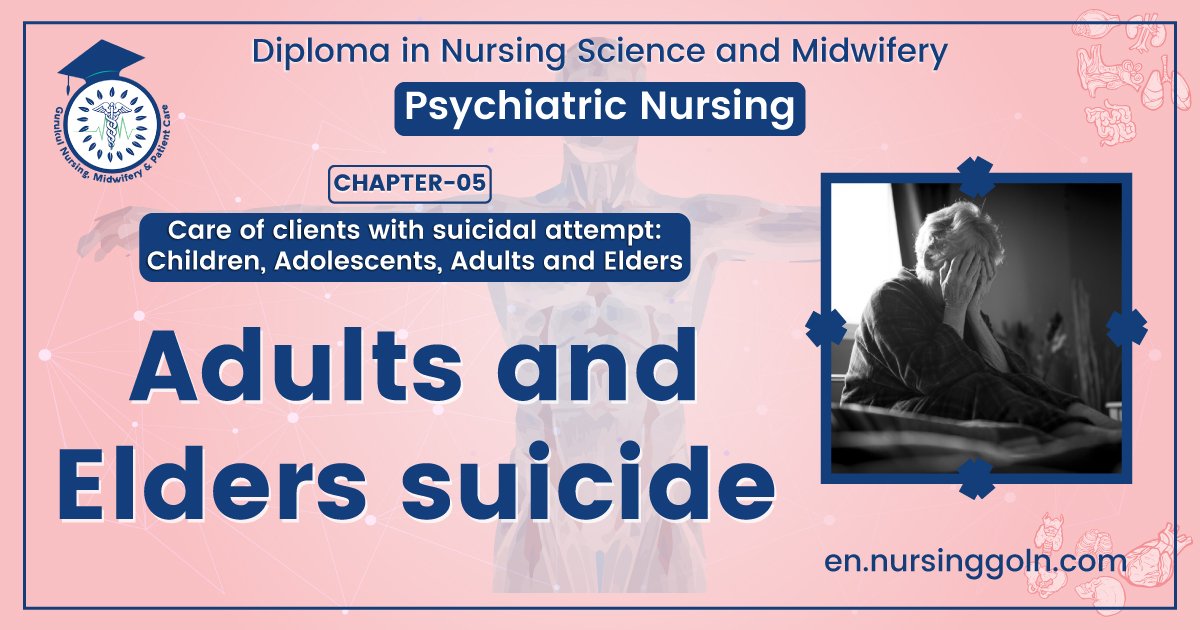Adults and Elders suicide – This book covers the entire syllabus of “Psychiatric Nursing” prescribed by the Universities of Bangladesh- for Basic and diploma nursing students. We tried to accommodate the latest information and topics. This book is an examination-friendly setup according to the teachers’ lectures and examination questions.
At the end of the book previous university questions are given. We hope in touch with the book students’ knowledge will be upgraded and flourish. The unique way of presentation may make your reading of the book a pleasurable experience.

Adults and Elders suicide
Suicide is an important problem among elderly/older adults. Suicide rates are particularly high among older men, with men ages 85 and older having the highest rate of any group in the country. Suicide attempts by older adults are much more likely to result in death than among younger persons. Reasons include:
⇓ Older adults plan more carefully and use more deadly methods.
⇓ Older adults are less likely to be discovered and rescued.
⇓ The physical frailty of older adults means they are less likely to recover from an attempt.
Warning Signs:
Mnemonic “IS PATH WARM” makes it easier to remember the signs to look for:
✓ Ideation (thinking and talking of death)
✓ Substance Abuse
✓ Purposelessness
✓ Anxiety/Agitation
✓ Trapped (feeling that there is no way out, no where to get help, a wish to get away from everything)
✓ Hopelessness/Helplessness
✓ Withdrawal (isolating oneself from those around you)
✓ Anger
✓ Recklessness
✓ Mood Changes
[Ref-American Association of Suicidology and lecture]
Risk Factors
✓ Suicide ideation
✓ Personal history of suicidality
✓ Experience of a suicide loss
✓ Living alone/social isolation
✓ Physical handicaps
✓ Mental illness
✓ Negative life events and transitions
✓ Loss (health, relationships, independence)
✓ Major life changes, such as retirement, change in financial status, and moving from a home or community
✓ Depression
Or,
Long-term factors of elderly suicide include:
✓ Having a mental health condition
✓ Having a chronic health condition
✓ A history of substance abuse
✓ Family genetics
✓ A history of early trauma
✓ Having a head injury
Recent factors of elderly suicide include:
✓ Being intoxicated
✓ Isolation, or loss of social interactions
✓ Losing the ability to function independently
✓ Experiencing an unanticipated stress

Prevention of elderly suicide:
✓ Good health/health practices
✓ Strong social network and contact
✓ Family/friends support
✓ Active interests
✓ Restricted access to highly lethal methods
✓ Feeling a purpose in life
✓ Care for mental and physical health problems
✓ Social connectedness
✓ Skills in coping and adapting to change
[Ref-Canadian Coalition for Seniors Mental Health and lecture]
